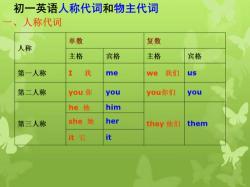Everyone代词的含义与用法
代词“everyone”和“every one”的区别与用法
“everyone”和“every one”都是代词,但它们在用法和含义上有所不同。

“Everyone”是一个词,意思是“每人”或“人人”,它只指人,不指物。在句子中,“everyone”通常用作主语或宾语,后面不能跟介词“of”短语。例如:
Is everyone here today? 今天大家都到齐了吗?
Everyone in the street was shocked when they heard the news. 听到那条消息,街上所有的人都震惊了。
Everyone needs some free time for rest and relaxation. 每个人都需要一些休息和放松的自由时间。
Everyone knows he's the only person who can do the job. 人人都知道他是唯一能做这项工作的人。
I call on everyone to renounce the use of violence and armed struggle. 我呼吁每个人都放弃使用暴力和武装斗争。
相比之下,“every one”是两个词,意思是“每个”,既可以用来指人也可以用来指物。在句子中,“every one”后面可以跟介词“of”短语。例如:
His books are wonderful. I have read every one of them. 他的书很精彩,每一本我都读了。
He had two dozen oysters and enjoyed every one of them. 他吃了两打牡蛎,每一只都吃得津津有味。
They can't destroy truth without destroying each and every one of us. 除非他们将我们赶尽杀绝,否则真理不灭。
When danger appeared,every one of them held back. 当危险到来的时候,他们每一个人都退缩了。
Every one of us wishes this war were over and won. 我们每一个人都希望这场战争能够结束并取得胜利。
“everyone”和“every one”虽然都是代词,但它们在用法和含义上有所不同。
标签:everyone
推荐阅读
- 《喜欢你我也是第三季》:寻找真爱的浪漫之旅
- 探秘都江堰景区鱼嘴:观光车与门票的实用指南
- 申明的正确写法与用途:个人声明的范例与要点
- 手太阴肺经的准确位置和走向:守护您的呼吸健康
- 羊汤:家常做法,滋补又暖身的美味佳肴
- 如何在Photoshop中恢复左侧的工具栏?
- 美团会员开通指南:如何轻松成为美团会员并享受更多特权
- 《与犯罪的战争》:揭秘韩国黑白道交锋的传奇故事
- 海火:海洋之夜的绚丽奇观与生产建设的密切关系
- BMI指数男女标准:保持健康体重的关键
- 合约机是什么意思?一篇带你全面了解合约机的定义、特性及办理流程
- 小章鱼怎么处理:烹饪前的必备技巧与步骤
- 慈湖中学:免费参观,感受校园文化魅力
- 诱人的蛋堡制作方法:美味又健康的早餐选择
- 青岛口腔医院:守护口腔健康,提供专业服务
- 香山公园:轻松探访自然美景与交通指南
- 父爱如山:描绘父亲的温暖与坚韧
- 大喘气:背后的原因及应对方法
- 乱炖大家庭:家常美味一锅端,轻松享受丰富口感
- 电信宽带缴费全攻略:微信上轻松完成包年续费
- 创造101投票教程:如何通过腾讯视频官网为心仪的选手点赞




















